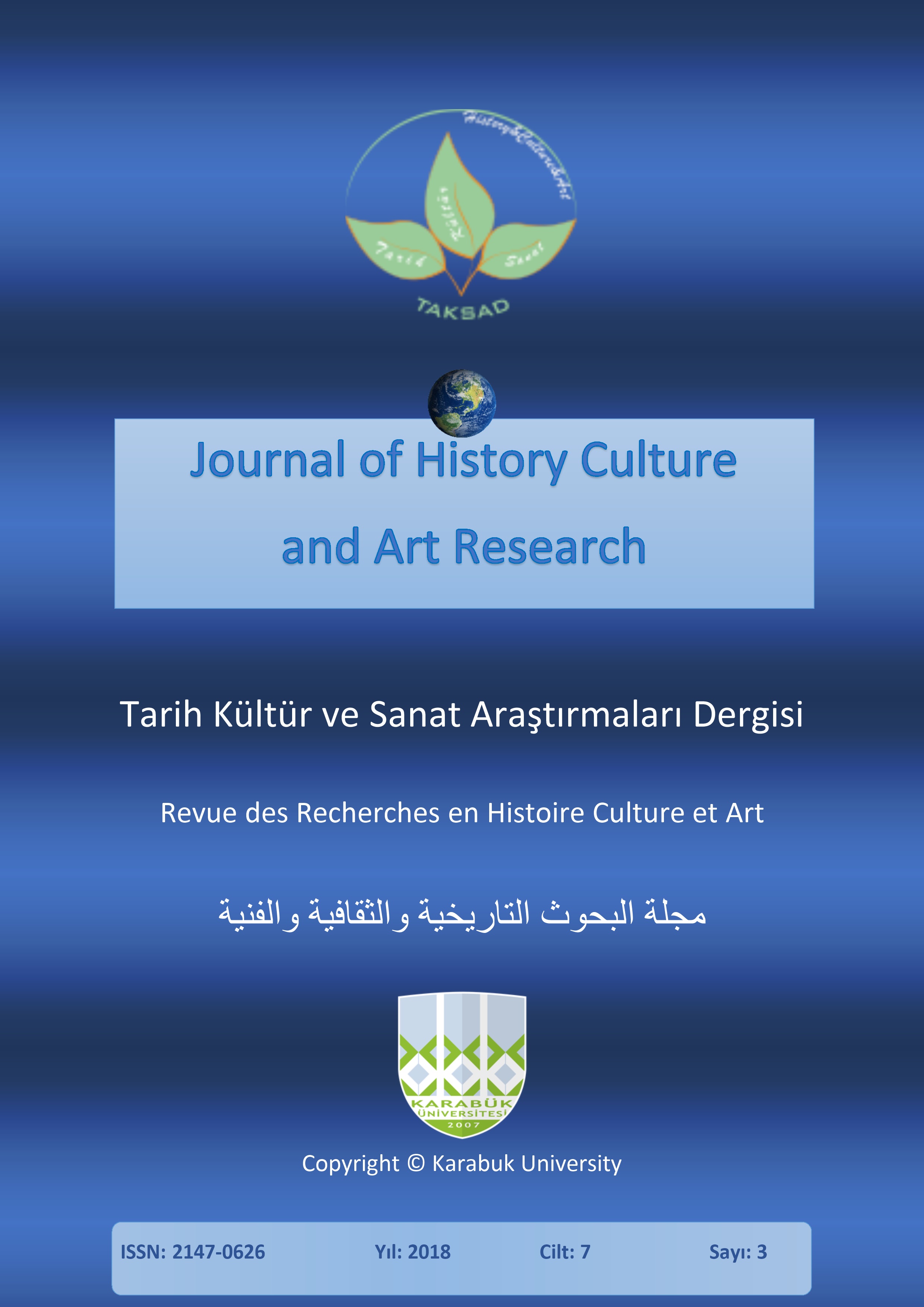Ethnic Identity of the Mountain Jews and Indicators of Its Reproduction
DOI:
https://doi.org/10.7596/taksad.v7i3.1701Anahtar Kelimeler:
Ethnic identity- Mountain Jews- National language- National traditions- Religion- Ethnic group.Özet
This article considers the indicators and mechanisms for the reproduction of the ethnic identity of Mountain Jews. Cognitive, emotional and behavioral aspects of their ethnic identity were shown based on the empirical study. It is established that the national (native) language, ethnic traditions, religion, common life in a certain territory, common character and similar behavior, national literature, historical homeland and historical memory are the most important markers for the reproduction of the ethnic identity of Mountain Jews. The national language has a leading position in this hierarchy. The level of possession of among the surveyed Mountain Jews is not at a high level. Self-awareness is the most important parameter of determining the ethnicity of a person for Mountain Jews through which identification with a specific ethnic community takes place. Moreover, the awareness of belonging to one's own people consists in knowing their national (native) language, traditions, customs, ethnocultural specifics, belonging to their ethnic group.
Referanslar
Achkasov, V. A. (1999). Ethnic identity in situations of public choice. Journal of Sociology and Social Anthropology, 2(1), 131-143.
Arutyunyan, Yu. V.; Drobizheva, L. M. & Susokolov, A. A. (1999). Ethnosociology. Moscow.
Berger, P. & Luckmann, T. (1995). Social construction of reality. Moscow.
Bromley, Yu. V. (1983). Essays on the theory of ethnos. Moscow.
Chlenov, M. (2000). Between the Scylla of de-Judaization and the Charybdis of Zionism: Mountain Jews in the 20th century. The Diaspora. Independent scientific journal, 3, 174-198.
Drobizhev, L. M. (2003). Sociology of Interethnic Tolerance. Moscow: Publishing House of the Institute of Sociology RAS.
Drobizheva, L. M. & Ryzhova, S. V. (2017). Ethnicity and interethnic relations in a social context [Electronic edition]. Moscow: FNISTS RAS.
Erikson, E. (1996). Identity: youth and crisis. Moscow.
Fayzullin, F. S. & Zaripov, A. Ya. (1997). Borders of ethnic identification. Sociological research, 8, 40-47.
Gitelman, Ts.; Chervyakov, V. & Shapiro, V. (2000). National Self-Consciousness of Russian Jews. Diasporas. Independent scientific journal, 3, 52-86.
Kondakov, I. V.; Sokolov, K. B. & Khrenov, N. A. (2011). Civilizational identity in the transitional era: cultural, sociological and art criticism. Moscow: Progress-Tradition.
Ryzhova, S. V. (2011). Ethnic identity in the context of tolerance. Moscow: Alfa-M.
Sikevich, Z. V. (1999). Sociology and psychology of national relations. Saint-Petersburg: V.A. Mikhailovۥs Publishing house.
Stefanenko, T. G. (2003). Ethnopsychology. Moscow, 2003.
Stefanenko, T. G. (2007). Socio-psychological aspects of the study of ethnic identity. URL: http://flogiston.ru/articles/social/etnic (Accessed: June 18, 2018).
Touraine, A. (1973). Production de la societe. Paris.
İndir
Yayınlanmış
Nasıl Atıf Yapılır
Sayı
Bölüm
Lisans
Tarih Kültür ve Sanat Araştırmaları Dergisi'nde yayımlanan tüm çalışmalar Creative Commons 4.0 CC-BY lisansı ile lisanslanmıştır.
Bunları yapmakta özgürsünüz:
- Bu eseri her boyut ve formatta paylaşabilir — kopyalayabilir ve çoğaltabilirsiniz.
- Materyalden Adapte et — karıştır, aktar ve eserin üzerine inşa et
- her türlü amaç için, ticari amaç da dahil
Alttaki şartlar altında:
Atıf — uygun bilgiyi, lisansa linki, and ve değişiklik yapıldıysa değişiklik bilgisinivermelisiniz. Sizi veya kullanımınızı lisansörün onayladığı bilgisini içermemek kaydıyla, size uygun şekilde bu işlemleri gerçekleştirebilirsiniz.
AynıLisanslaPaylaş — Eğer materyali karıştırdınızsa, aktardınızsa ya da materyalin üzerine çalıştınızsa, ancak aynı lisans ile dağıtabilirsiniz.
- Ek sınırlamalar yoktur — Lisansın izin verdiği hakları başkaları üzerinde kanunlarla ya da teknolojiyikullanarak sınırlayamazsınız.







